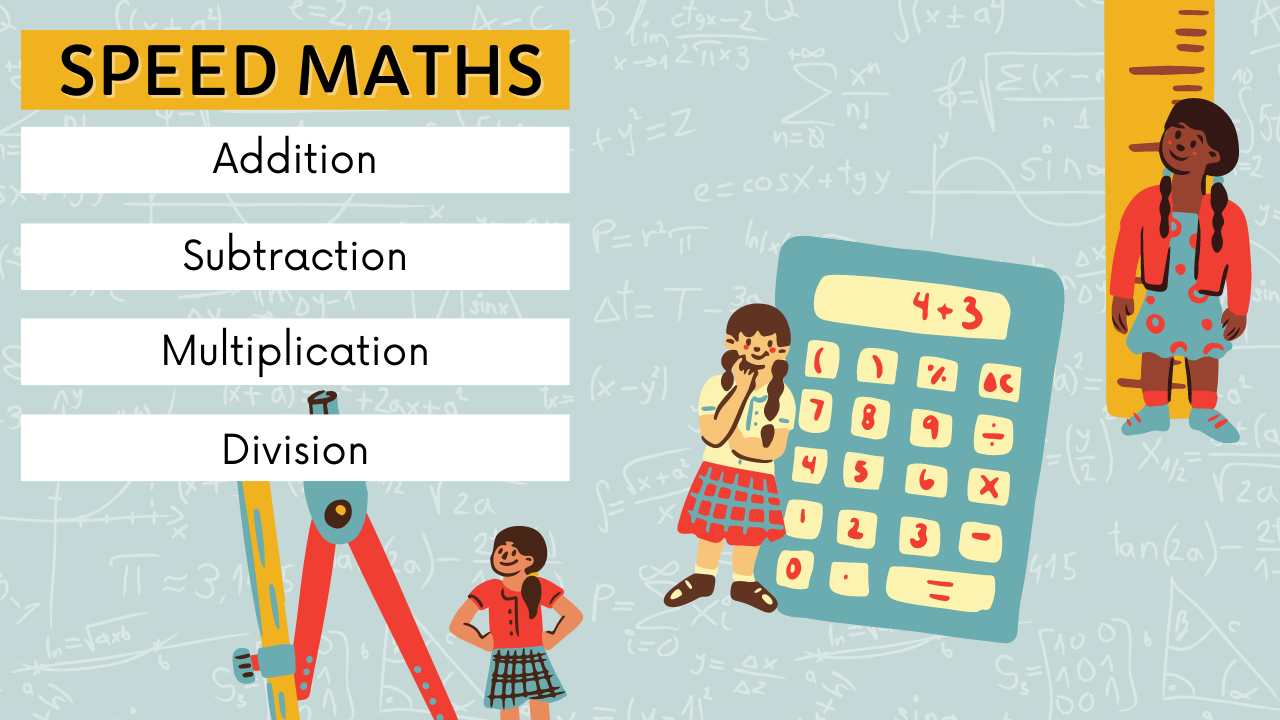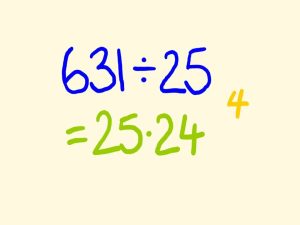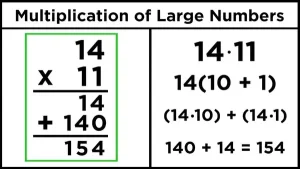Math can seem like an impossible mountain to climb. Even the most dedicated students can be intimidated by the sheer number of equations and numbers in algebra, geometry or calculus. What if you were able to approach math with confidence and ease? What if you could solve problems more quickly and accurately by using some tips and tricks?
This blog post will explore ten powerful math strategies. These insights, from clever mental math to effective study habits will make math not only more approachable but enjoyable. Unlock the secrets to transform your numerical prowess.
Math Skills: The Importance of Math Skills
The foundation of our lives is math skills. Math skills are essential for understanding the world, whether it’s budgeting your expenses or measuring ingredients in a recipe. Understanding math allows individuals to confidently navigate different situations.
Strong math skills can open the door to careers and advanced studies in engineering, finance and technology. Employers value the analytical skills and problem-solving abilities that come from math training.
Math also encourages logical thinking. It trains your brain to be able to critically analyze information and solve problems systematically. This skill set goes beyond numbers and enhances the ability to make everyday decisions.
Math can be a great way to boost your self-esteem. Completing complex calculations can foster a sense achievement that will translate into other areas of your life. We cultivate resilience and flexibility as we develop our numerical talents. These are traits that are essential to personal growth and success.
Practice makes perfect: Tips for regular practice
It is important to practice regularly if you want to improve your math skills. It’s more than just solving problems. You need to develop a routine so that math feels natural.
Every day or every week, set aside time for math. Even 15 minutes a day can make a big difference. Consistency and small, frequent sessions can be more effective than cramming.
Diversify your resources to stay fresh. You can spice up your practice with workbooks, math games, and online quizzes. It keeps you interested and prevents boredom.
Keep track of your progress. Keep a journal to track your progress.
As you progress, challenge yourself to more difficult problems. By pushing boundaries, you can grow while strengthening your foundational skills.
Mental Math Strategies for Speed Improvement
Anyone who wants to increase their speed will benefit from mental math. Consider simple strategies to help you quickly calculate.
Breaking numbers into smaller parts is an effective way to add. If you want to add 47 with 36, divide them into rounds. For example, 40 + 30. Then adjust the values.
A useful method is to use benchmarks such as ten or fifty. Consider doubling your number and then dividing by two before multiplying it by five.
Knowing the common cubes and squares will also help you to perform quick calculations. Mental shortcuts are created when you know that (122=144).
Visualize the calculations. You will become more proficient at these techniques the more you practice them. It’s liberating to solve problems with no pen or paper!
How to memorize formulas and equations
It can be intimidating to memorize formulae and equations. With the right tricks it is manageable.
Break each formula down into smaller components. Instead of memorizing each part, focus on what it represents. This method creates a more clear mental picture.
Mnemonics can be powerful too. Use catchy phrases and acronyms to remember complex sequences. You might recall the order of operations by using “PEMDAS”, which stands for Parentheses (from left-to-right), Exponents (from right to left), Multiplication and Divisison (from right to left), and Addition and Suspension (from right to left).
Visual aids also help to improve memory. Formulas can be written on posters or flashcards and placed in a place where they are easily accessible. Multi-sensory learning reinforces the process.
Apply these formulas to different situations. You will be able to remember them more easily if you have used them for real-life problems.
Using Technology for Efficiency
The use of technology can make a huge difference in your ability to improve math skills. Apps are available to help you understand and practice concepts.
Calculators have evolved a lot. Calculators can do more than just basic calculations. They can also solve complex equations and graph functions. Use these tools to help you during your study sessions.
Online platforms provide interactive lessons that adjust to your pace. Khan Academy and other websites provide immediate feedback to allow for corrections.
Many students also find virtual study groups to be effective. Google Meet and Zoom are tools that allow students to collaborate from anywhere, while sharing their screens for real-time problems solving.
Gamified learning apps are also worth considering! These applications make learning a fun challenge. They help you grasp difficult concepts by making them more engaging.
Breaking down complex problems into smaller parts
It can be overwhelming to solve complex math problems. It is important to break them down into smaller and more manageable pieces.
Start by identifying your main problem. What are you being asked to do? After you have clarified the question, break it down into smaller parts. Find variables and constants which stand out.
Then, concentrate on one segment. You can reduce your cognitive load by focusing on each segment individually.
Use visual aids such as diagrams or charts when mapping out the relationships between elements. This method will not only help you organize your thoughts, but it also brings clarity.
Do not hesitate to write any intermediate steps needed for resolving these segments. Each small victory builds confidence, which helps you to solve the bigger issue with ease.
Keep focused and organized during exams
You can improve your performance by staying organized during tests. Create a schedule of study well in advance. Divide subjects into manageable portions and assign specific times to each topic.
The night before, collect all the materials you will need for your exam. Included in this are pens, calculators and any notes that you may be allowed. Clearing your workspace will also reduce distractions.
Maintain focus by using mindfulness techniques. The breathing exercises can help calm nerves and improve concentration.
Prioritize the questions that you find easier to tackle before tackling more challenging ones. You can start with the questions you find easiest to gain momentum.
Review answers before submitting if time permits. This simple step could help you catch mistakes that were made without care or give an opportunity to add details where necessary.
A systematic approach will help you not only in your exams, but also throughout your academic career.
Learn from your mistakes and use feedback
The road to improvement is not paved with mistakes. Errors in math can reveal a lack of understanding. View them as an opportunity to grow, rather than feeling discouraged.
In this process, feedback is an important tool. Constructive criticism, whether it comes from peers or teachers, can help you identify areas that need attention. Accept it with an open-minded attitude.
Analyze where you went wrong. Was it an error in judgment or a misunderstanding of concepts? By reflecting on these questions, you can improve your understanding and avoid making similar mistakes again.
Keep a record of all errors and feedback. This information allows you to monitor progress and identify patterns.
Everyone makes mistakes, but it’s your response that will set you apart. Turn every challenge into a triumph on your journey to master mathematics.
Collaboration with peers for extra support
When it comes to learning math, collaborating with others can make a huge difference. You can learn from your classmates by sharing different approaches and perspectives to solving problems.
The group study session creates an atmosphere where questions can be asked freely. Someone else may have already solved a problem that you are struggling with. This can provide insights that help make concepts more clear.
Understanding is strengthened by explaining your thinking process to others. One of the best methods to consolidate knowledge is by teaching. Explaining a formula or a method will help you to remember it better.
Peer support is also a great motivator. Math can be intimidating; friends encourage persistence and keep morale up during difficult topics.
Consider creating a regular study group. This method not only improves your learning, but it also helps you build camaraderie with classmates by tackling challenges together.
Positive Attitude towards Others
A positive attitude toward math can make a huge difference on your learning journey. Accept challenges as an opportunity to improve and grow. View difficult problems as puzzles that need to be solved, rather than fearing them.
Celebrate your small wins along the way. Take a moment each time you solve a difficult equation or grasp a new idea to recognize your progress. This shifts the focus from anxiety to accomplishment.
Surround yourself in positivity. Join study groups or engage with friends that have similar goals. Being in a positive environment is motivating.
Everyone learns at a different pace. Persistence is the key. It’s ok to struggle at times. Cultivating resilience can help you gain confidence to tackle future math challenges.
If you cultivate a positive relationship, math will become less intimidating and more exciting. As you practice, your accuracy and speed will improve.




